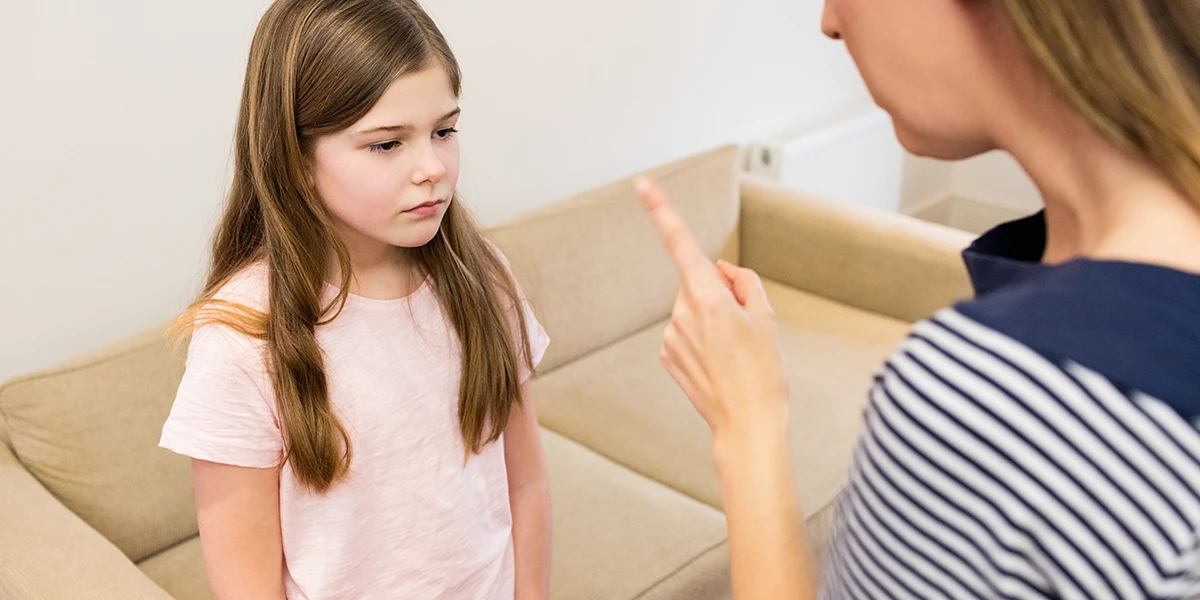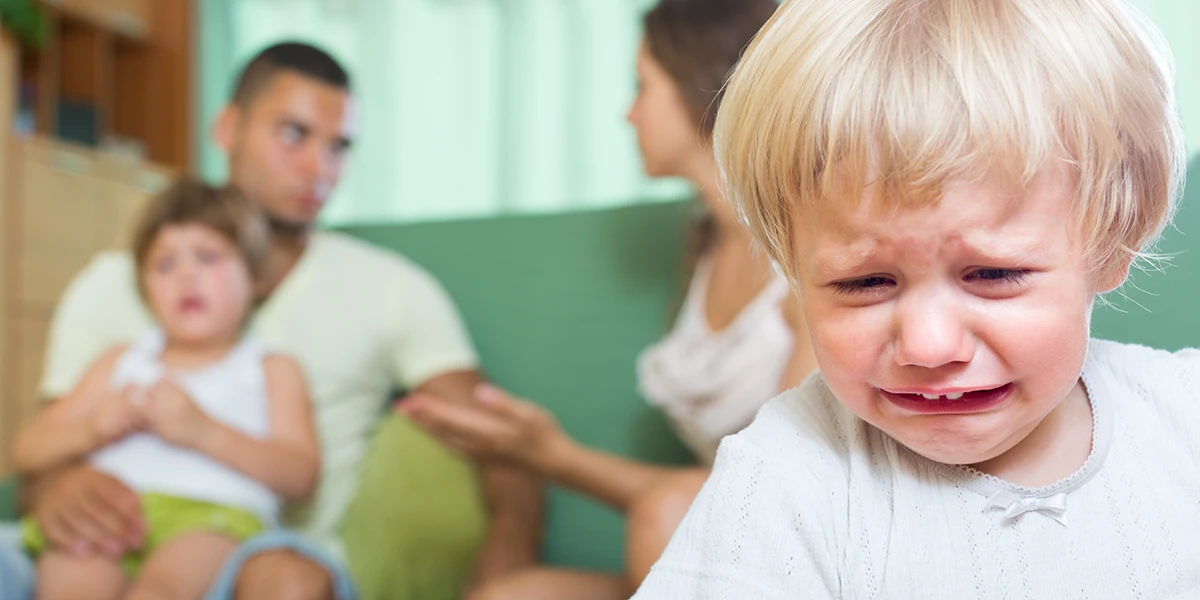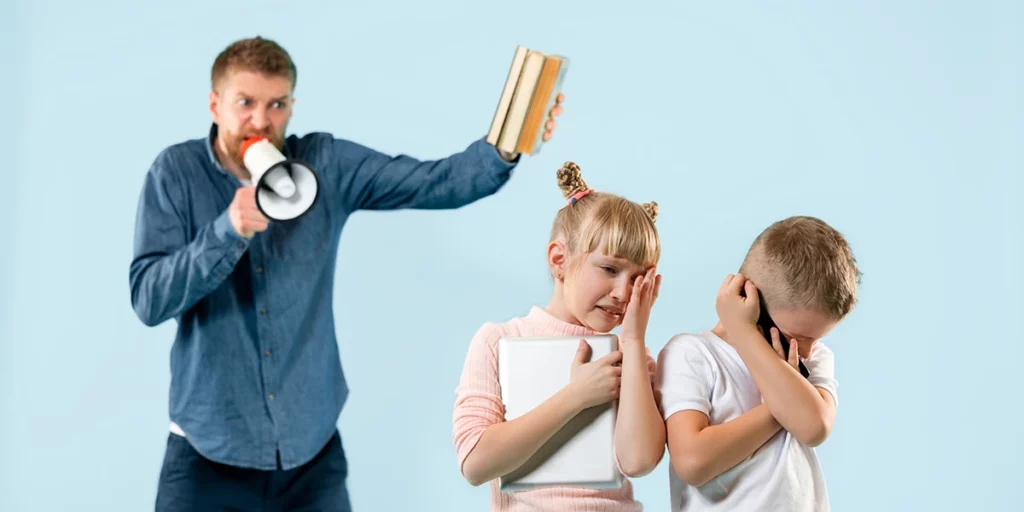Authoritarian parenting, also known as strict parenting, is a parenting style characterized by high expectations of compliance, little communication, and little warmth. There are two types of authoritarian parenting: coercive and directive. Coercive authoritarian parents use physical or verbal aggression, threats, and intimidation to control their children. Directive authoritarian parents use commands, orders, and rules to control their children. In this blog post, we’ll talk about the benefits and the drawbacks of adopting an authoritarian parenting style.
Download and Start Your Free Trial of the Safes Parental Control App
What Is an Authoritarian Parenting Style
An authoritarian parenting style is a way of raising children that is characterized by high demands and low responsiveness. Some authoritarian parenting characteristics include:
- Having very high expectations of their children and expecting them to follow strict rules and obey without question.
- Tending to use harsh punishments, such as threats, shaming, or physical discipline, to enforce their authority and control their children’s behavior.
- Authoritarian parents provide very little feedback and nurturing to their children, and when they do, it is often negative or critical.
- They value obedience, discipline, and conformity over individuality, creativity, and autonomy.
Some authoritarian parenting examples include:
- A parent punishes a child for lying by taking away their favorite toy or not letting them play with friends
- A parent responds with anger when a child breaks a rule, like playing video games before finishing their homework
- A parent expects strict adherence to rules, but fails to provide an explanation as to the rationale behind the rules
- A parent says something like “because I said so,” or “because I want you to do it” when a child asks why they must do something
Benefits of an Authoritarian Style of Parenting
There are not many benefits of authoritarian parenting, as it can have harmful effects on children’s development and well-being. However, some possible benefits are:
- Enhancing the safety of the children by creating clear rules and boundaries that protect them from harm.
- Fostering good behavior and obedience by setting high expectations and standards for the children.
- Creating responsible citizens by teaching them to respect authority and follow the law.

Drawbacks of Authoritarian Parenting
Parents who practice this style tend to show little warmth, affection, or praise to their children. According to Insider, some of the possible consequences of an authoritarian parenting style are:
- Children may rank lower in happiness, social competence, and self-esteem.
- Children may act fearful or overly shy around others, and associate obedience and success with love.
- Children may experience depression and anxiety.
- Children may develop poor social skills, lower life satisfaction, and higher aggression.
- Children may be more likely to lie to avoid punishment.
Adults raised by authoritarian parents may experience various negative effects on their mental health and well-being. Adults who grew up with authoritarian parents may have a poor sense of self-worth and confidence. They may doubt their abilities and achievements and feel unworthy of love and respect or struggle with self-acceptance and self-compassion.
They may worry excessively about meeting expectations and avoiding mistakes and also have difficulty coping with stress and uncertainty, and experience symptoms of anxiety disorders, such as panic attacks, phobias, or obsessive-compulsive behaviors.
These adults may use alcohol, drugs, or other substances to cope with their emotional pain and distress. They may also have a higher risk of developing addiction or dependence on these substances, which can impair their physical health and social functioning.
Adults who grew up with authoritarian parents may have difficulty expressing and regulating their anger. They may also have trouble resolving conflicts and maintaining healthy relationships.
These effects are not inevitable or irreversible, however. Adults raised by authoritarian parents can heal from their childhood wounds and overcome their challenges with the help of therapy, support groups, self-help books, or other resources. They can also learn new skills and strategies to improve their self-esteem, manage their anxiety and depression, reduce their substance use, and communicate their anger in constructive ways.

Balancing the Benefits and Drawbacks
Authoritarian parenting is not recommended by most experts and researchers, which is definitely a sign of bad parenting. Authoritative parenting can be a great replacement for authoritarian parenting. This is a more balanced parenting style when it comes to disciplining and supporting children.
This style is high in both demands and responsiveness. Authoritative parents are firm, consistent, and nurturing. They have high expectations for their children, but they also provide guidance and encouragement. They respect their children’s opinions and feelings, while also enforcing rules and boundaries. You can also use our age-appropriate discipline chart for dealing with your child.
Using a Parental Control App
Parental controls are a great choice for all parenting styles. Using parental controls on your child’s device such as MacBook parental controls or using a parental control app like Safes can help balance an authoritarian parenting style with less harsh tactics for disciplining a child. With Safes you can:
- Limit your child’s screen time
- Monitor your child’s screen activity
- Set a smart schedule for apps
- Instantly block apps
The great thing about Safes is that it’s an app that cannot be deleted from your child’s phone without your consent. To learn more about Safes feel free to download the Android or iOS version and try out your free trial today.
Conclusion
An authoritarian parenting style can greatly influence the character of children, especially in negative ways. The cons outweigh the pros and that’s why this parenting style isn’t a viable option. Whether it’s a coercive parenting style or a decisive one, it’s best to try out other parenting styles such as an authoritative style instead.
Your Child’s Online Safety Starts Here
Every parent today needs a solution to manage screen time and keep their child safe online.
Without the right tools, digital risks and excessive screen time can impact children's well-being. Safes helps parents set healthy boundaries, monitor activity, and protect kids from online dangers—all with an easy-to-use app.
Take control of your child’s digital world. Learn more about Safes or download the app to start your free trial today!




